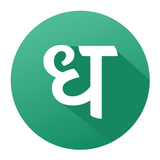Demat Account 101: Everything beginners need to know
A Demat account holds your investments securely in digital form. Understand its types, benefits, step-by-step guide to open account, documents required, fees and more.

If you are planning to invest in the Indian stock market, you need to first open a Demat account. A Demat account, short for 'dematerialised account,' is where your shares and securities are stored in electronic form.
In the past, investors had to deal with physical share certificates, which often led to problems like theft, forgery, or loss of documents. However, with a demat account, when you buy a stock, it is credited, and when you sell it, the shares are debited from your account. Let’s discuss what is a demat account in detail.
Why do you need one?
Apart from being a legal requirement, a demat account comes with several benefits:
- Safe and paperless storage of securities in digital form.
- Instant transfer and settlement of shares.
- Eliminates risks of theft, loss, or damage of physical certificates.
- Simplifies portfolio tracking and monitoring.
- Easy access to corporate benefits like dividends and bonuses.
- Reduces transaction costs compared to physical trading.
- Allows pledging of securities for loans or margin.
- Enables quick, seamless trading through linked accounts.
- Consolidates multiple investments under one account.
- Convenient nomination facility for inheritance planning.
Types of Demat Account
Demat accounts are of the following four types:
Regular Account
A regular demat account is meant for Indian residents. It is a digital vault of securities that eliminates the need for physical certificates. The account ensures electronic record-keeping with depositories like NSDL and CDSL. Stockbrokers link it to a trading account for market transactions and to a bank account for fund settlements.
Basic Account
A Basic Services Demat Account (BSDA) is meant for small investors. It reduces costs while still allowing access to securities in digital form. SEBI introduced it to promote financial inclusion by offering low or zero annual maintenance charges based on the value of holdings. If the value of holdings remains below ₹50,000, no AMC is charged. For holdings between ₹50,001 and ₹2,00,000, a nominal charge applies.
Repatriable Account
A repatriable demat account caters to Non-Resident Indians (NRIs) who prefer to invest in Indian securities and repatriate funds abroad. To operate this account, NRIs must link it with a Non-Resident External (NRE) bank account. The funds and capital gains in this account are fully repatriable, subject to RBI and FEMA regulations.
Non-Repatriable Account
A non-repatriable demat is also for NRIs, but it differs in its rules for fund transfer. It must be linked with a Non-Resident Ordinary (NRO) bank account, where earnings from India, such as rent, dividends, or pension, get deposited.
While NRIs can invest in Indian instruments using this account, they cannot transfer the funds abroad, only up to prescribed RBI limits. This account suits NRIs who wish to reinvest Indian income within the country.
HUF Demat Account
A Hindu Undivided Family (HUF) demat account is opened in the name of the HUF, represented by its Karta. It allows families to collectively hold and manage investments in securities like shares, bonds, and ETFs.
The HUF demat account operates similarly to an individual demat account but requires additional documentation, such as a HUF PAN card and a declaration signed by all coparceners. This structure helps families streamline their investments under one entity while retaining tax and legal benefits.
Step-by-Step guide to open a Demat Account
For instant, demat account opening, follow the steps outlined below:
- Step 1: Visit the Dhan website or download the app from the Play Store or App Store.
- Step 2: Verify your mobile number and email address.
- Step 3: Upload scanned copies of your KYC documents. Below are the required ones.
- PAN card for identity verification.
- Aadhaar card or Passport for proof of address.
- Recent passport-sized photographs.
- Canceled cheque or bank statement for bank proof.
- Income proof (like ITR or salary slip) if trading in derivatives.
- Step 4: Create a digital signature to complete the account opening process.
- Step 6: Once approved, you will receive a unique Beneficial Owner Identification Number (BO ID). The account is now active and can hold securities electronically.
Types of fees
Here are seven types of fees you must be aware of before operating a demat account:
Account Opening
This fee is charged by depository participants (DPs) when you open a Demat account. Some brokers waive this fee to attract new investors, while others may charge a one-time amount ranging between ₹200 and ₹500. The charges depend on whether you are opening an individual account, joint account, or a corporate account.
Annual Maintenance
Annual maintenance charges (AMC) are recurring fees levied to keep your Demat account active. You may come across brokers having a tier-based AMC structure where higher holdings invite higher charges.
In many cases, the first year may be free, after which normal AMC applies. This fee is separate from trading charges and must be paid irrespective of account usage.
Custodian Fee
Custodian fees are levied by the depositories for safekeeping of securities in electronic form. This fee is usually charged on a monthly basis and is based on the number of International Securities Identification Numbers (ISINs) held in your account.
Most brokers collect this fee and pass it to NSDL or CDSL. However, in recent years, many depository participants have absorbed this cost to remain competitive.
Transaction Fee
A transaction fee is applicable whenever you buy or sell securities through your Demat account. This charge is levied by your broker and differs from brokerage fees.
It is usually calculated either as a flat charge per transaction or as a percentage of the transaction value. While buying shares may attract no fee, selling almost always incurs charges.
Dematerialisation Fee
The dematerialisation fee applies when you convert physical share certificates into electronic form. The fee is applied per certificate or per request, depending on the depository participant’s policy.
Pledge Fee
Pledge fees are charged when you pledge your securities in a Demat account as collateral for a loan or margin facility. The depository participant levies this fee for creating, closing, or invoking a pledge. The charges are usually calculated per ISIN or as a percentage of the pledged value.
Transfer Fee
Off-market transfer fees are charged when you transfer securities directly from one Demat account to another outside stock exchange platforms. Such transfers typically occur in cases of gifting shares, transmission after the death of an account holder, or shifting holdings across brokers.
To wrap up
A Demat account is the foundation of investing in India. For beginners, it offers security, convenience, and the ability to easily diversify investments. As a result, it is important to understand what is demat account what is the use of it. From opening an account with a Depository Participant to managing different types of securities, everything becomes simpler with a Demat account.




